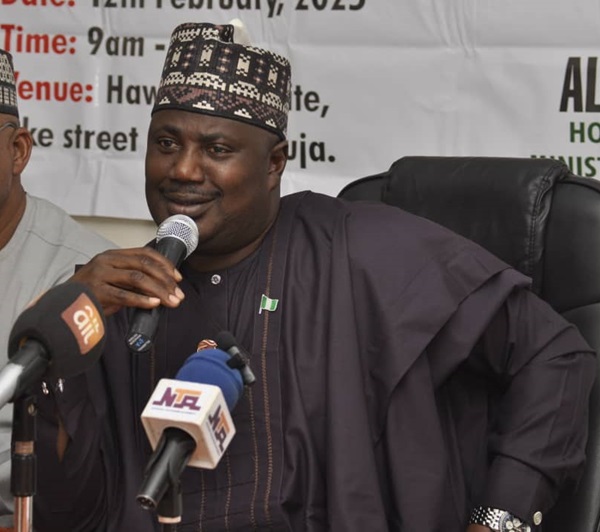
The Federal Ministry of Agriculture and Food Security (FMAFS) has reaffirmed its commitment to revitalising the cooperative sector as a driver of economic growth, social cohesion, food security and poverty reduction in Nigeria.
Speaking at the Technical Strategy Session on the Implementation of the Cooperative Reform and Revamp Programme held in Abuja, Minister of State for Agriculture and Food Security, Dr. Aliyu Abdullahi emphasised the need for a transparent, accountable and inclusive cooperative sector.
“Our mission today is to create an enabling environment that fosters innovation, entrepreneurship, and job creation. This aligns with President Bola Tinubu’s ‘Renewed Hope’ agenda, which prioritises economic growth and development,” Abdullahi stated.
He highlighted key focus areas, including reviewing the final report from the Ministerial Technical Working Group on Cooperative Reform and aligning implementation strategies with the President’s vision of building a $1 trillion economy. He also noted that the global cooperative sector holds an asset base of approximately $19.6 trillion and generates annual revenues of $2.98 trillion, underscoring its vast economic potential.
Abdullahi outlined plans for restructuring the Federal Department of Cooperatives and strengthening institutions such as the Federal Cooperative Colleges and the National Centre for Cooperative Development. “The goal is to equip these institutions to provide high-quality training and prepare Nigerian youths for a modern, people-centric cooperative movement,” he added.
The minister further stressed the importance of collaborations and partnerships with private sector operators, civil society organisations and cooperative societies across various sectors. “The cooperative movement thrives on democratic principles and progressive thinking. Our success depends on active participation and teamwork,” he said.
In his remarks, director of the Federal Department of Cooperatives, Idris Sani emphasised the need for a vibrant and inclusive cooperative sector that benefits all Nigerians. “We must work together to promote social inclusion and position cooperatives as catalysts for socio-economic transformation,” he said.
Additionally, special assistant to the Minister of State on cooperatives and farmers’ welfare, Hon. Victor Oyegoke highlighted the programme’s role in integrating youth, people with disabilities (PWDs) and gender inclusiveness into cooperative development. He noted that collaborations with organisations like the European Union would be instrumental in achieving these goals.


